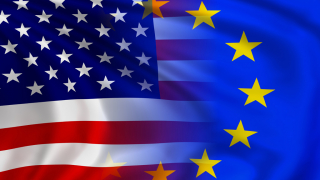UN Jerusalem Vote: Epic Humiliation Or Brilliant Opportunity For America?
25.12.2017
International media is correct in framing the UN General Assembly vote on Jerusalem as an epic humiliation for the US, but it's overlooking how this entire controversy was choreographed by the Trump Administration as a brilliant opportunity to obtain a "plausible" pretext for scaling down and in some cases outright suspending its foreign aid payments.
Trump came into office promising to cut the US' foreign aid, among many of his other populist pledges, and the UN General Assembly just handed him the perfect pretext for doing so. Over 120 countries supported a resolution condemning the President's unilateral recognition of the entirety of Jerusalem as "Israel's" capital, and UN Representative Nikki Haley remarked right beforehand that the US would remember how everyone voted.
Trump got personally involved and added that the US will reconsider the foreign aid that it gives to countries who voted against the American move, arguing that it makes little sense to continuing doling out money if it doesn't translate into tangible political influence such as standing alongside it at the UN. The President has a point, and it's that states are incentivized to change their soft power strategy if the existing one doesn't yield the desired results.
To be sure, the US wasn't spending billions of dollars across the decades just to buy a single vote at the UN in 2017, but it's framing the epic humiliation at the General Assembly as the much-needed excuse for scaling down its commitments in the future. Foreign aid has always been used as a means to ensure the loyalty of the US' counterparts in other countries, but it hasn't worked as intended over the years as evidenced by most states' developing partnerships with China and their participation in its One Belt One Road global vision of New Silk Road connectivity.
Not only that, but it's difficult for politicians to convince the American public of the long-term strategic necessity for what basically amounts to foreign bribery and building up other countries' infrastructure when many of their own impoverished neighborhoods are falling apart. This naturally made the lessening of foreign aid and the redirecting of its freed-up financial resources back into the US a popular component of Trump's platform in the eyes of his base.
Trump always intended to deliver on this promise because it makes the most sense to him and his team. Instead of giving money away and having little or nothing to show for at the moments that it counts most, the idea is that it's better to leverage trading relationships to this end instead, wagering that the US can still get something out of the interaction even if it doesn't succeed in reaping political dividends.
As with all strategies, the initial phase of rolling out and implementing this one is crucial, and if Trump had decided to cut down on foreign aid within his first few weeks in office, then it would have been interpreted as an undeserved "punishment" that could have harmed the US' prospects for retaining its existing partnerships with the relevant states. Now, however, there's a "legitimate" reason for why the US might do this, and it's that Washington is making it out to be the fault of the recipient governments themselves because of how much they humiliated America at the UN.
The stage is now set for the US to lessen or fully stop its aid payments to a wide array of countries on the "plausible" pretext that they "deserved" it, which allows Trump to fulfill his campaign pledge to populist applause while also shaping the narrative that this was in reaction to those states' "anti-American/-Semitic" vote at the UN. As such, Washington doesn't consider it as an "undeserved" punishment, and is still signaling that it will continue its other economic and military partnerships with those countries so long as their pertinent policies in those spheres also don't go against American and "Israeli" interests.
It should be noted in connection with this conclusion that the US is essentially breaking diplomatic "norms" by being so direct with its behavior in annunciating a clear quid-pro-quo between UN votes and foreign aid payments, and it's in this vein that Nikki Haley is the perfect person for the job. With no diplomatic experience whatsoever, she doesn't know or even care about the old order of business at this institution, which is why Trump selected her for this position because he wants her to epitomize his renegade policy of "shaking things up".
Trump detests the UN elite who he's regularly ridiculed as liberal ideologues that hate America's "special place" in the world and are always trying to undermine it, so there's a certain logic to why he would appoint someone like Haley who's only real purpose is to disrespect its diplomats and disrupt the working efficiency of this institution from within as part of the President's efforts to "Make America Great Again".
It's debatable whether directness and an eschewing of diplomatic norms is actually "disrespectful" or not, and there's a counterintuitive chance that this untraditional approach might make the UN less of a "talking club" and more results-oriented for better or for worse, but nevertheless the point is that the Trump Administration is putting the global body to use in advance of the US' interests as it understands them, and that the epic humiliation that it experienced at the UN actually presents several brilliant opportunities for Washington of which the curtailing of foreign aid is just one example.
DISCLAIMER: The author writes for this publication in a private capacity which is unrepresentative of anyone or any organization except for his own personal views. Nothing written by the author should ever be conflated with the editorial views or official positions of any other media outlet or institution.











